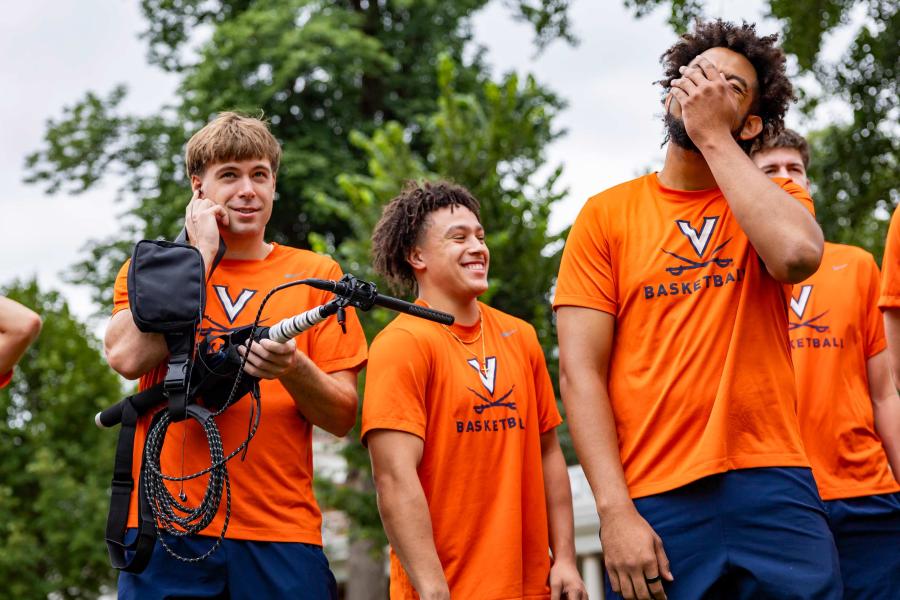U.S. Navy Capt. Marvin Scott wants to pass his pilot experiences on to the midshipmen of the University of Virginia’s Naval ROTC program.
“When I commissioned and selected aviation, I was super excited about it, and it was an opportunity to do something that I had never done before,” he said. “I’d only ridden on a couple of commercial flights and never been in the front seat of an airplane until I had my first flight in flight school.”

Scott, a graduate of ROTC himself, says he chose UVA because of the school’s reputation. (Photo by Matt Riley, University Communications)
Scott, who took command of UVA’s Naval ROTC program on Aug. 11, has logged 3,700 flying hours – 850 of those in combat – and made 890 carrier landings. He found flying an important teacher.
He said pilots must maintain situational awareness and be prepared for unforeseen circumstances in order to accomplish their mission.
“It taught me the importance of preparation and self-reliance and maintaining a calm demeanor regardless of the circumstances,” he said. “It’s very important to show up ready to go before you get into that airplane, because if you don’t know the ins and outs of what you’re supposed to do, if you’re not prepared for the contingencies and emergencies you might encounter, if you’re not prepared for the mission you’re going to go execute, you’re going to fail.”
These are among the lessons he wants to impart to the midshipmen in his command.
“I want them to prepare themselves to be warfighters and to be leaders of sailors and Marines,” he said. “I want junior officers who would come to me in the fleet as people who are ready to learn, ready to make tactical decisions, ready to operate their weapons platform, whether that be an aircraft, a ship, a submarine or a rifle.”
A native of Houghton, Michigan, Scott entered Naval ROTC at Carnegie Mellon University in Pittsburgh, where he studied computer science and mathematics. After his commission, he trained in scuba diving and completed flight training at Naval Air Station Pensacola and NAS Oceana in Virginia Beach. He trained at the Navy Fighter Weapons School and stayed on as a TOPGUN Instructor at the Naval Strike and Air Warfare Center at NAS Fallon in Nevada.
“I was a training officer at TOPGUN and did a lot of graduate-level teaching for FA-18 pilots and weapon systems officers,” he said. “You learn a lot about the fundamentals of teaching there. Hopefully, that will make me a better professor of Naval Science here at UVA.”









